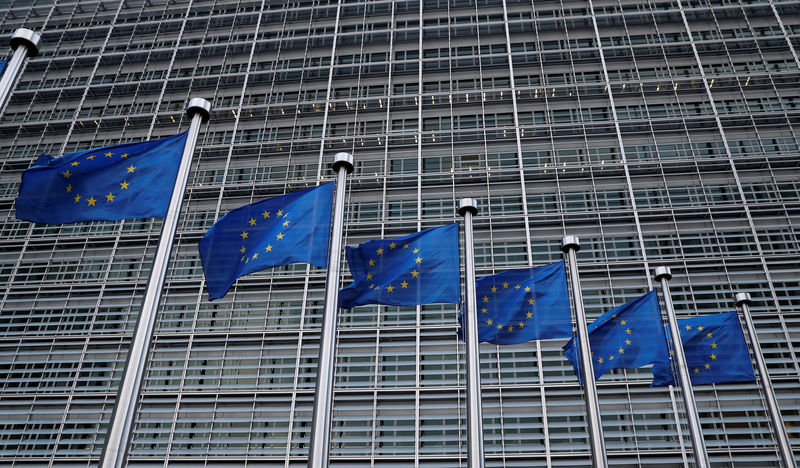By Francesco Guarascio
BRUSSELS (Reuters) - The European Commission on Tuesday pushed back plans to end individual member states' veto power on the introduction of a proposed tax on digital revenues by five years to 2025.
In a non-binding proposal on wider tax reform, the commission recommended EU states end the practice that requires the backing of all 28 members to approve EU tax rules, contrary to other fields where decisions are made by a majority.
The EU executive proposed that in some sectors, such as environment levies, EU states should agree quickly on whether to end the veto. However, for the digital tax, whose progress is blocked by some EU states, the decision to end the veto could be taken by the end of 2025, it said, pushing back the deadline from 2020, as indicated in an initial draft seen by Reuters.
In another crucial step back from initial plans, on Tuesday the EU Executive led by former Luxembourg Prime Minister Jean-Claude Juncker, decided to dismiss a legal procedure that could make tax reforms easier to agree, prompting lawmakers to dub the move as a "smokescreen".
The digital tax was proposed last March by the European Union's executive arm. It would impose a 3 percent tax on online revenues of big digital companies, which are accused of paying too little by routing their EU profits to states with lower taxes, like Luxembourg and Ireland.
However, the plan is deadlocked after EU finance ministers failed to agree on the tax in December, despite a last-minute Franco-German plan to salvage the proposal by narrowing its focus to companies like Google (O:GOOGL) and Facebook (O:FB).
COST OF VETO POWER
The veto power has blocked many key tax reforms, including on energy issues, where the EU still allows subsidies to diesel despite its environmental policy deterring its use, an EU official said.
The fight against tax evasion has also been hampered by the vetoes, the commission said, citing the 25-year resistance by a group of small states, spearheaded by Luxembourg, to introduce common savings tax rules in the EU.
The cost of the vetoes on tax reforms overall are in the hundreds of billions of euros a year, the EU document said.
Ironically, the decision to end veto powers will have to be agreed unanimously by all EU states, as the commission refused on Tuesday to recommend the use of a long-neglected treaty article that would drop the unanimity rule when competition in the EU market is distorted, as in the case of digital taxation.
Invoking this rule would allow decisions on tax reforms to be made by a majority of states.
A commission official said article 116 was not recommended because it could be used only for targeted measures and could face legal challenges.
"The European Commission is putting up a smokescreen," said EU lawmaker Sven Giegold who sits in the EU parliament's committee on tax evasion.
"The plan to overcome unanimity blockades with a unanimous decision is absurd and obviously ineffective," he added.
His fellow Green party member, Bas Eickhout, called the move an "empty gesture."
The commission in its document estimated that failure to agree a reform of the corporate tax base, which was first proposed in 2011, has hampered EU growth, with losses worth 180 billion euros ($207 billion) in 2017 alone.
The lack of agreement on an EU financial transactions tax, first rolled out in 2011, has also cut the bloc's tax revenues by 57 billion euros a year, the document said.
